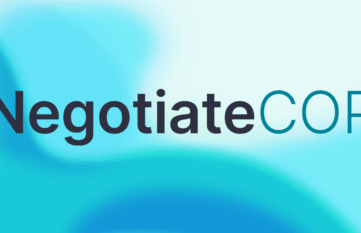Tinkering, testing, constructing further: Interview with Priya Vora, CEO of DIAL

It can be so simple. Digitalising the state, administration and society like a Lego house, one building block at a time. A digital future is a given – but a positive, sustainable, and inclusive digital future is in our hands. Since 2016, the Digital Impact Alliance (DIAL) is committed to helping to build a world where data and technology serve people, society, and the planet. Through its focus areas of Research, Technology, Policy, and Country Engagement, DIAL serves as a global resource on people-centered digital transformation, providing practical guidance and innovative solutions to influence a more inclusive and equitable digital environment. To this end, DIAL, together with the BMZ and other partners, is a co-founder of GovStack, an open-source toolkit for public administration. DIAL also stewards the Principles for Digital Development, which serve as essential guidelines for digital development projects. So there are many reasons to talk to DIAL’s CEO, Priya Vora.
It has been a decade since the Principles for Digital Development were first compiled in 2014. How has the world of digital development changed since then?
I was deeply involved in the creation of the original Principles when I was at USAID. It’s fair to say that we were living in a time of “techno-optimism” that access to technology and relevant content could democratize information and services even to the most vulnerable. Much of that spirit remains true and, in fact, the role of digital is beneficial to 70% of the Sustainable Development Goals. But three major trends have emerged since then:
First, there is a greater realization of the risks. Since 2014, we’ve seen the Cambridge Analytica scandal, various dis/misinformation campaigns, and the suppression of civil liberties/dissent via digital surveillance tools, just to name some. Less obvious risks are related to market concentration and power imbalances.
Second, there’s a much more crowded landscape of actors who all play a part in how digital solutions impact development outcomes. Mitigating these prospective harms and maximizing inclusion requires policies around data and competition; private sector expansion into new customer groups; civil society organizations supporting awareness of digital rights and needs; and so much more.
Finally, there is the pace of change. Colleagues at the World Bank put this well when they reminded us that it took 75 years for fixed telephones to reach 100 million users globally. Mobile phones reached that milestone in 16 years; the internet 7 years and ChatGPT 2 months.
For all these reasons and more, the Principles community and those of us at DIAL felt an acute need to ensure the Digital Principles are relevant to the moment and to the broad set of stakeholders who are critical to ensuring trust and inclusion in the digital future.
Why did you decide to publish a new version of the Principles? What parts did you decide to change?
Actually, the decision was not ours alone. Behind the principles stands an engaged and active community of over 300 organizations, all of whom have affirmed the need for a revision. Together, we determined that the principles needed to be changed in some areas: to better reflect that people today largely interact with technology outside of development programs; to better capture the risks and opportunities associated with digital technology design, deployment, and governance as understood today; and to better address design and policy decisions at every stage of the digital technology lifecycle.
The refreshed Principles recognize the need to promote radical inclusion and local ownership. This is particularly important to us as challenges and opportunities have expanded through the generation and use of digital data. And they intentionally speak to the original audience -digital development practitioners- while resonating further with the full diversity of individuals and organizations that influence the design, deployment, and governance of digital systems and solutions.
The Principles are mutually reinforcing, as they emphasize the actions needed to ensure no one is left behind in an increasingly digital world. In addition to adding a preamble that emphasis these overarching themes and linkages, the Principles themselves have been updated to account for key points of consensus among the community members consulted.
From your experience, what is the impact of artificial intelligence on digital development? What can we do to realise its full potential?
Artificial intelligence is not simply the next tech fad; experts agree that artificial intelligence is an unambiguously transformative technology. We are already witnessing the positive effects of this generative leap, from precision healthcare to smart energy management to financial security. At the same time, many are anticipating the ways in which it can negatively impact society – from job loss over the medium term to wider spread mis- and dis-information in the short-term.

Priya Vora
I attended the World Economic Forum where AI was a constant topic among policymakers and corporate representatives. While a lot of the conversation is rightfully focused on safeguards and regulation, there was also broad recognition that the foundations need to be laid to ensure that AI is relevant and useful to the global population. Energy, connectivity, and the digital public infrastructure which supports inclusive digital economies are all needed if the benefits are to be evenly felt. In other words, there is a risk that the full potential of AI will not be realized in countries that (a) do not have effective means by which to generate and unlock data on which to train new AI models and algorithms to create locally-relevant solutions; (b) countries where the compute is costly or out of reach; and (c) where skills and capacity to build AI tools and oversight mechanisms are limited.
Priya Vora
But I remain optimistic. I started my career in financial inclusion with the hope of giving women more agency over their money and assets. I am particularly struck by the energy and excitement growing around digital wallets with AI-enabled means of personal data curation. Imagine, for example, a virtual storage space containing one’s money, credentials, and identity documents personalized to share your data according to your personal preferences. Such an innovation would give real control to people allowing them to carry their assets with them and hopefully unlock a new wave of services on top.
The last few years have been characterised by deepening geopolitical fault lines. Is it becoming more difficult for DIAL to find common ground among all its partners?
It is true that there are commercial and geopolitical factors that we must keep in mind as we operate in the international development ecosystem. Our collaborators in governments have a mandate to protect their national interests, while our partners at the big multilateral institutions are tasked with overcoming society’s toughest challenges in a deeply divisive global political environment. And yet, we at the Digital Impact Alliance find a lot of common ground when it comes to our goals of promoting inclusion, encouraging transparency, and empowering more people so that digitalization can lead to share prosperity.
Finding this common ground has real impact – for example, in strengthening the ways that women can participate online, how they can use services to improve their lives, their sense of agency and redressal, and much more. This is exactly why a set of common principles developed through global consultation is critical. We see our role as helping to move the global community together in a positive direction.
Priya Vora
How do you see Germany’s role in digital development? What role do you expect German development organisations to play in the next five years?
Development assistance has been strained as the world faces multiple crises simultaneously. Germany, like most places, has not been immune to these strains. It begs the question: how can we create the enablers to fast-track progress and make the most of the resources we have? This is, of course, where digital can play a key role.
Germany has much to bring to bear on the digital transformation agenda. As the first country to adopt national legislation to implement GDPR, Germany has already proven itself a thought leader on how to achieve a rights-based approach to digitalization. As one of the largest aid agencies in the world, GIZ has an incredible funding and staffing footprint through which to work and share resources. With staff all over the world, this can have a massive impact on global collaboration and coordination. With more people from a variety of backgrounds working on the same projects and tactics to overcome shared challenges, the impact could be exponential.

Priya Vora
Priya Vora is the CEO of the Digital Impact Alliance and has over 20 years’ experience working to ensure the world’s most marginalized communities are empowered with political voice and economic opportunity. A widely recognized and respected leader in global development, Priya has forged strategic partnerships and networks with some of the biggest development champions across the globe and has a proven track record of excellence in designing interventions to advance financial inclusion and digital development. Before joining the Digital Impact Alliance initially as the Managing Director, Priya founded the non-profit Future State which led research and advocacy to ensure more people benefit from the data economy. Her extensive background also includes setting up the Digital Development team in the U.S. Agency for International Development during the Obama Administration and establishing the financial inclusion practice at the Bill & Melinda Gates Foundation. In addition to her position at the Digital Impact Alliance, Priya serves as a non-resident fellow at the Brookings Institute.


